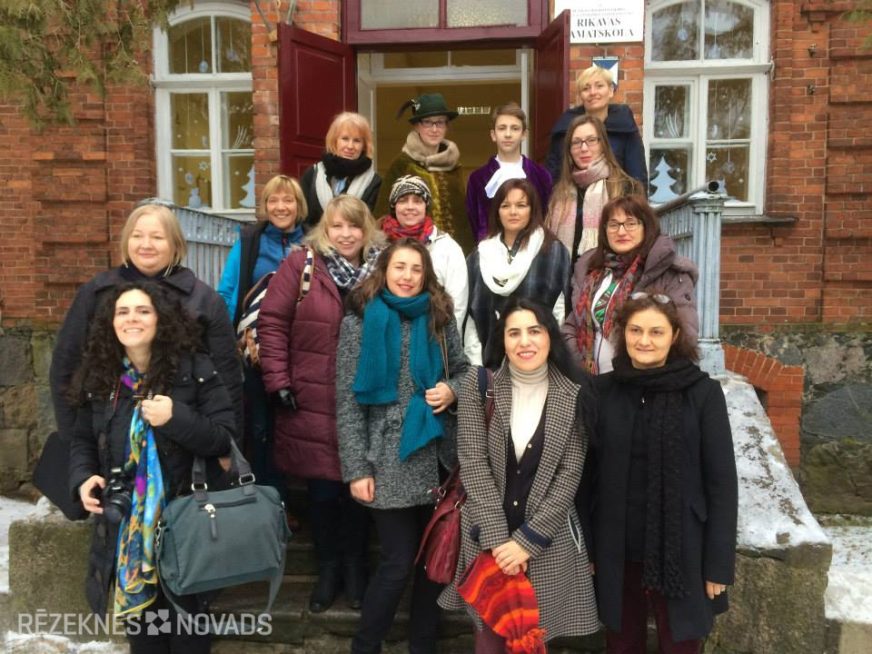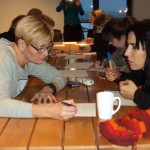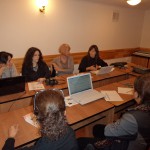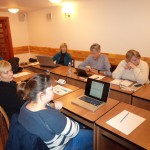In Rikava, teachers from abroad were hosted

We every day have a choice of how to live, how to behave what to do. Our current choices determine our future. When we make a choice, we must be responsible for it and also be prepared to accept the consequences of our choice, we must not take responsibility for the choices we have made on the shoulders of another man. It is very important to teach this responsibility at the school age. It is necessary to allow children to understand that life is much more pleasant and more interesting if they choose healthy leisure activities with peers, behave and communicate in a manner acceptable to themselves and people. This is the main objective of the European Union Lifelong Learning Programme “A Matter of Choices”, which is being implemented for a second year at Rikavas in primary school.
In early December, 14 teachers from Austria, Belgium, Denmark, Poland, Portugal, Romania, the United Kingdom (Scotland) and Turkey visited Rikava. Although for all visitors this was the first visit to Latvia and we wanted to show Latvia's most beautiful places, giving them as much insight as possible in Latvian and Latgalian cultural historical traditions, however, the main purpose of this visit was intensive work in groups, forming hour plans for single-generation violence (bowling), healthy lifestyles, different types of dependencies. All materials can be used by other teachers in their own hours.
Over the course of several days, problems related to livelihoods, unhealthy lifestyles and lack of sporting activities have been analysed and discussed. Each of the nine participating schools told their experience in fighting the growing dependence of young people on modern technologies – computer and telephone. This is why the project envisages one week in April 2015, when some volunteers will try to live without using modern technologies and the Internet.
It was also discussed at the time of the visit whether there should be an age limit from which the child may start to register on the social networks of the Internet. A broad discussion was about whether a teacher and pupils can be the so-called “friends” in social networks and how the teacher's internet profile information can be visible to students. The opinions differed, but the main idea was, however, unifying: “every one of us (both a teacher, a pupil and a parent) must think what personal information and photos we are putting on the Internet, because sometimes it might be harmful to us. On the Internet, the information remains, even if we delete it. 'Here it would be a Latvian proverb - seven times and once cut.
Ilze Kuhaļska, project coordinator


